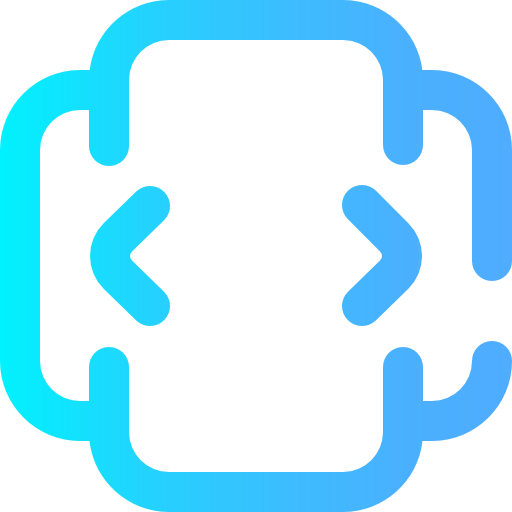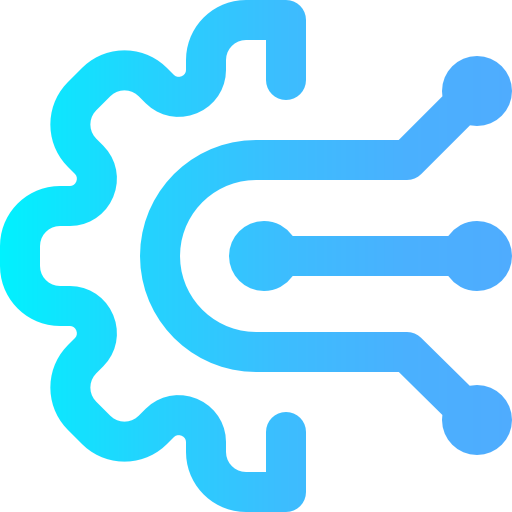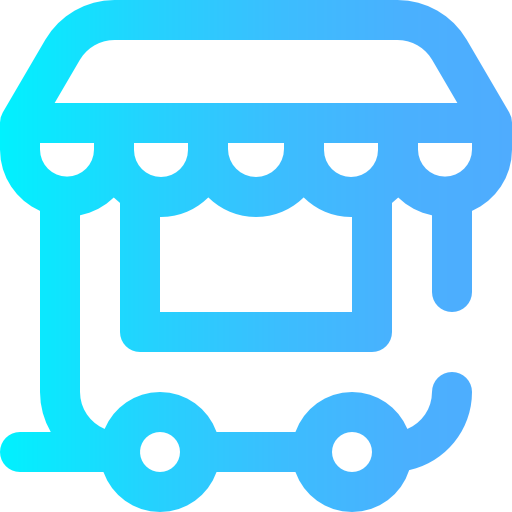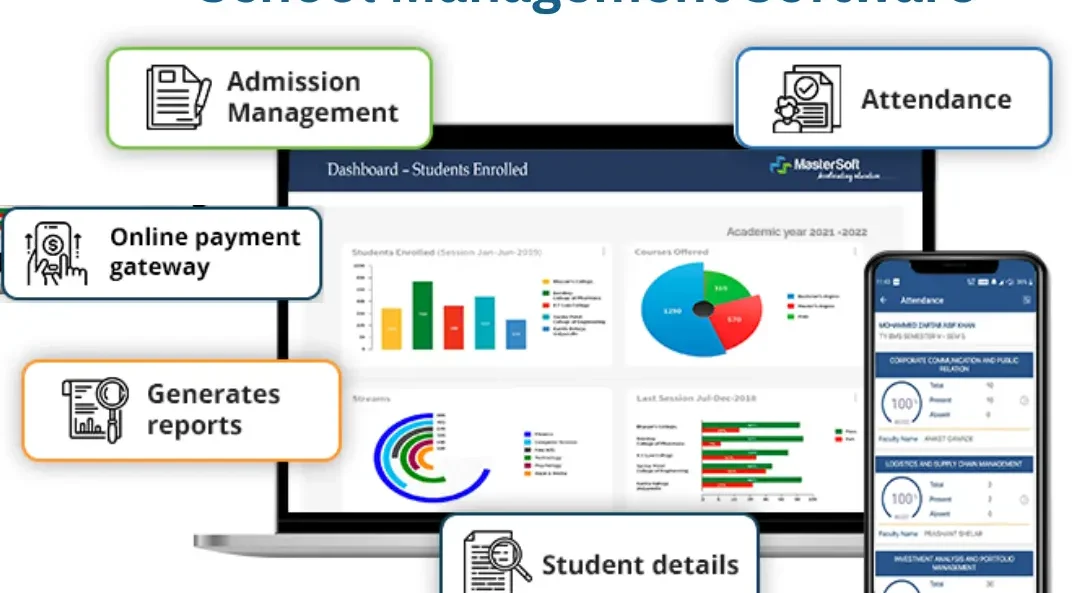These software development firms leverage cutting-edge technologies and industry best practices to design comprehensive solutions that automate various aspects of school administration, including student enrollment, attendance tracking, timetable scheduling, exam management, fee collection, library management, and communication with parents and staff.
Key features of school management software typically include:
- Student Information Management: Capture and maintain detailed student profiles, including personal details, academic records, attendance, and disciplinary actions.
- Academic Management: Manage course catalogs, class schedules, teacher assignments, grading, and examination processes efficiently.
- Admission and Enrollment: Facilitate online admission processes, including application submission, document verification, fee payment, and enrollment confirmation.
- Fee Management: Automate fee collection, receipt generation, fee reminders, and financial reporting to ensure smooth financial operations.
- Attendance Tracking: Monitor student attendance, generate attendance reports, and notify parents or guardians of absenteeism.
- Timetable Management: Create and manage class timetables, allocate classrooms and resources, and handle schedule changes effectively.
- Exam Management: Plan, schedule, and manage examinations, including question paper generation, seating arrangements, result processing, and report card generation.
- Library Management: Maintain a digital catalog of library resources, manage book loans, reservations, and returns, and track library usage statistics.
- Communication Tools: Provide communication channels such as emails, SMS notifications, mobile apps, and parent portals for seamless interaction between students, parents, teachers, and administrators.
- Reporting and Analytics: Generate comprehensive reports and analytics on various aspects of school operations, including academic performance, attendance trends, financial status, and resource utilization.
Some Important Software for School and College Management System
College management software automates administrative tasks, manages student data, academic records, faculty details, course schedules, and facilitates communication in educational institutions.
- Student Information System (SIS): SIS software manages student data including enrollment, attendance, grades, schedules, and academic records. It provides a centralized database for storing and retrieving student information, facilitating efficient management of student-related tasks.
- Learning Management System (LMS): LMS software allows educators to create, deliver, and manage online courses and educational content. It provides features for course administration, content creation, assessment, and collaboration, enabling interactive and engaging learning experiences for students.
- Library Management System (LMS): LMS software automates library operations such as cataloging, circulation, inventory management, and patron services. It provides a centralized platform for managing library resources, tracking borrowing and returns, and facilitating access to educational materials for students and faculty.
- Financial Management System (FMS): FMS software helps schools and colleges manage their financial operations, including budgeting, accounting, payroll, and billing. It provides tools for financial planning, tracking expenses, generating reports, and ensuring compliance with regulatory requirements.
- Human Resource Management System (HRMS): HRMS software streamlines human resource processes such as employee recruitment, onboarding, attendance tracking, performance evaluation, and payroll management. It helps schools and colleges manage their workforce more efficiently and effectively.
- Communication and Collaboration Tools: Communication and collaboration software such as email, messaging apps, and video conferencing tools facilitate communication between students, teachers, parents, and administrators. These tools enable real-time communication, collaboration on projects, and sharing of information and resources.
- Data Analytics and Reporting Tools: Data analytics and reporting software allows schools and colleges to analyze student performance data, track key performance indicators, and generate reports for informed decision-making. These tools provide insights into academic progress, student outcomes, and institutional effectiveness.
- Student Registration Software: One of the key components of school management software development is the implementation of advanced student registration software. This software simplifies the enrollment process, allowing schools to efficiently register new students, collect necessary information, and manage admissions seamlessly.
-
Counseling Software: Counseling plays a crucial role in guiding students towards academic and personal success. School management software includes the integration of counseling software, enabling schools to provide personalized counseling services to students, track counseling sessions, and monitor student progress.
-
Merit Management Software: Recognizing and rewarding student achievements is essential for fostering a positive learning environment. Merit management software allows schools to track student performance, manage merit-based awards and scholarships, and celebrate student accomplishments effectively.
-
ERP (Enterprise Resource Planning): School management software goes beyond individual modules to offer comprehensive ERP solutions. ERP systems integrate various school management functions, including student information management, academic administration, finance management, and communication, into a single cohesive platform, streamlining operations and improving efficiency.
-
Library Management System: LMS software is a comprehensive digital solution tailored to automate and streamline various library operations. It encompasses functionalities such as cataloging, circulation, inventory management, and patron services. This software empowers libraries to efficiently manage their collections, enhancing user experience and overall productivity.
Conclusion
In conclusion, school management is revolutionizing the way educational institutions operate, offering advanced solutions to automate administrative tasks, enhance communication, and improve overall efficiency. By leveraging student registration software, counseling software, merit management software, and ERP systems, schools in Lucknow can streamline their operations, enhance student success, and stay ahead in today’s competitive educational landscape.
























